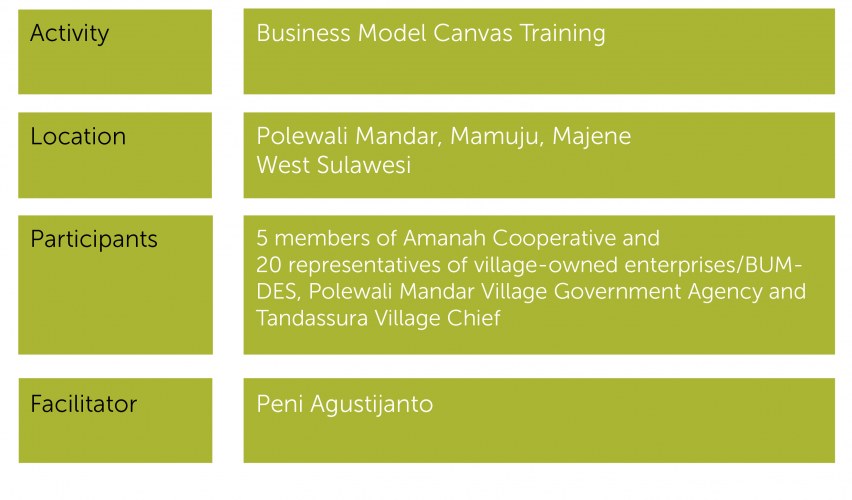Indonesia has experienced the growing of specialty coffee and craft chocolate businesses in the past decade. Locally sourced coffee beans are now one of the customers’ favourites at local coffee shops. While, Indonesia’s artisanal chocolate companies start taking pride in local sourcing. The growing market also shows that businesses pay greater attention to customer expectation and satisfaction. What does it mean for farmers who Rikolto works with?
Working in the cocoa and coffee sector for almost 20 years, I see the opportunity for farmers to strive and thrive in this “third wave” coffee and chocolate movement. Our past and current interventions focus on empowering farmers and farmer organisations through a wide array of strategies, that -most times- are beyond technical assistance. Our capacity building activities are human development-centred; by creating space for farmers to gradually transform into entrepreneurs.
We invest in activities that nurture entrepreneurial and leadership skills, so farmers can seize business opportunities in the agriculture value chain. In this context, Rikolto, Village Government of Polewali Mandar District and Indonesia Peasant Alliance (API) carried out Business Model Canvas Training in 3 districts (Polewali Mandar, Majene, and Mamuju) in West Sulawesi Province.






